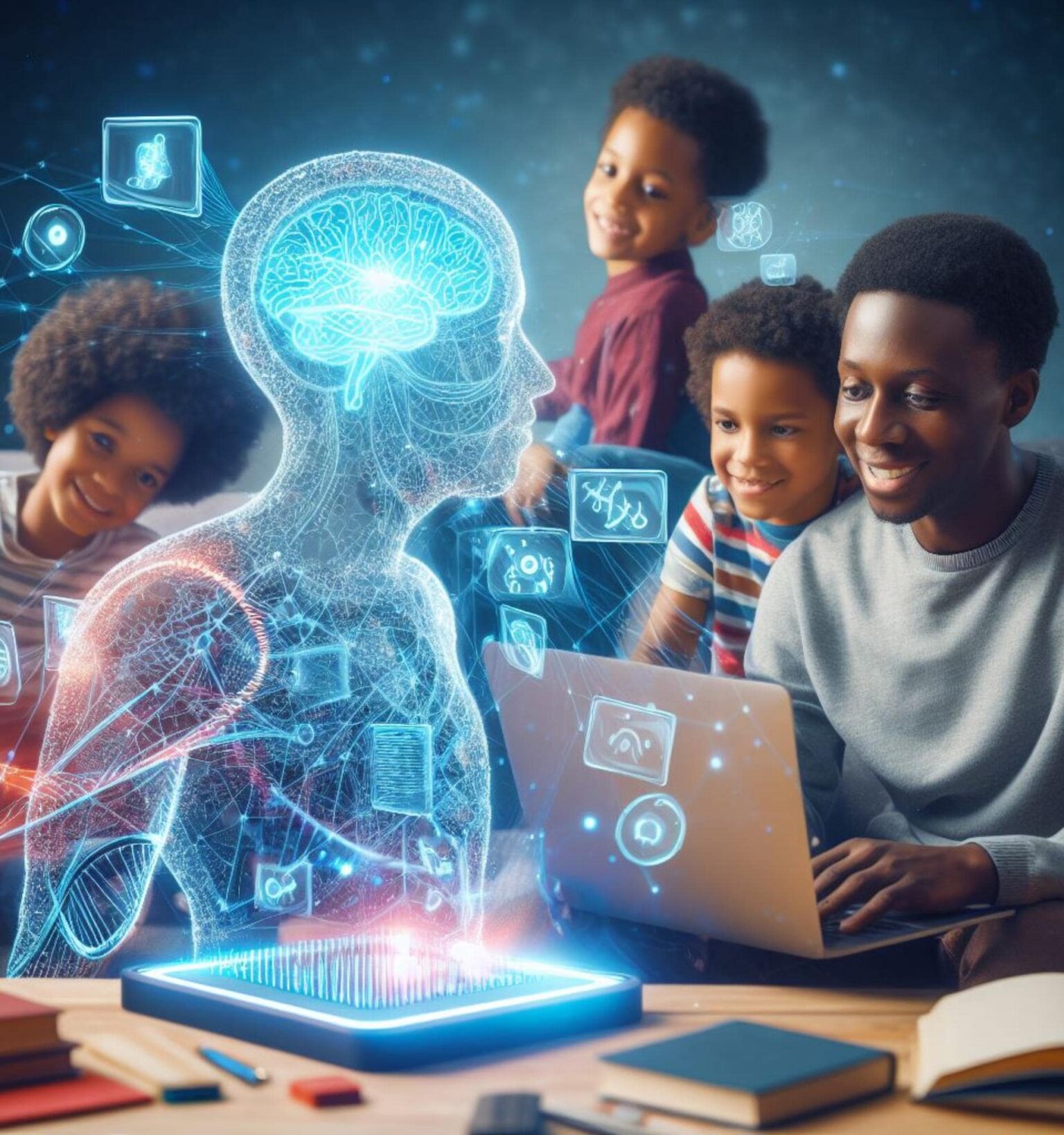Transformative Education: Harnessing the Full Potential of AI for Personalized Learning, Adaptive Teaching, and Lifelong Skill Development” explores the intersection of artificial intelligence (AI) and education, highlighting how AI technologies can revolutionize teaching and learning processes to accommodate diverse learning styles, optimize educational outcomes, and foster lifelong skill development. Here’s an overview of the key themes covered in this exploration:
Personalized Learning:
- Adaptive Learning Platforms: AI-powered adaptive learning platforms analyze student performance data, preferences, and learning patterns to deliver personalized learning experiences tailored to individual needs, interests, and proficiency levels.
- Intelligent Tutoring Systems: Intelligent tutoring systems leverage AI algorithms to provide real-time feedback, guidance, and adaptive instruction to students, helping them master concepts, fill knowledge gaps, and progress at their own pace.
- Individualized Learning Paths: AI-driven educational tools generate customized learning paths, curricula, and resources based on students’ learning objectives, preferences, and performance metrics, enabling self-paced, differentiated instruction and personalized skill development.
Adaptive Teaching:
- AI-Assisted Teaching: AI technologies support educators in curriculum design, instructional planning, and pedagogical decision-making by analyzing learning analytics, identifying teaching strategies, and recommending interventions to enhance teaching effectiveness and student engagement.
- Intelligent Content Creation: AI tools facilitate the creation of interactive, engaging educational content, such as multimedia presentations, simulations, and virtual reality experiences, that cater to diverse learning styles, preferences, and abilities.
- Feedback and Assessment: AI-powered assessment tools automate grading, provide immediate feedback, and generate insights into student progress, misconceptions, and learning trajectories, empowering educators to adjust instruction, scaffold learning, and address individual student needs effectively.
Lifelong Skill Development:
- Continuous Learning Platforms: AI-driven continuous learning platforms offer on-demand access to educational resources, courses, and microlearning modules that enable individuals to acquire new skills, update knowledge, and adapt to evolving industry trends and job requirements throughout their careers.
- Skills Mapping and Gap Analysis: AI tools analyze labor market data, skills taxonomy frameworks, and individual skill profiles to identify skills gaps, assess learning needs, and recommend personalized learning pathways and upskilling opportunities aligned with career goals and aspirations.
- Workplace Learning Solutions: AI-powered workplace learning solutions integrate learning into daily workflows, provide just-in-time training, and offer personalized coaching and mentorship to support skill development, knowledge transfer, and performance improvement in professional settings.
Ethical and Equity Considerations:
- Ethical AI Use: Ensuring ethical AI use in education by addressing concerns related to privacy, data security, algorithmic bias, and transparency, and promoting responsible AI design, development, and deployment practices that prioritize learner well-being, equity, and inclusivity.
- Digital Divide Mitigation: Addressing digital divide challenges and disparities in access to technology, connectivity, and digital literacy skills by implementing equitable policies, infrastructure investments, and educational interventions that bridge the digital divide and promote equal opportunities for all learners.
- Human-Centered Approach: Maintaining a human-centered approach to AI in education that values human expertise, empathy, and creativity, and leverages AI as a complement to, rather than a replacement for, human teachers, mentors, and educational support professionals.
Conclusion:
“Transformative Education: Harnessing the Full Potential of AI for Personalized Learning, Adaptive Teaching, and Lifelong Skill Development” underscores the transformative potential of AI in education to revolutionize teaching and learning processes, empower learners of all ages and backgrounds, and create more inclusive, equitable, and future-ready educational ecosystems. By embracing AI-powered personalized learning, adaptive teaching strategies, and lifelong skill development initiatives, stakeholders can unlock the full potential of education to empower individuals, drive economic opportunity, and foster societal progress in the digital age.



